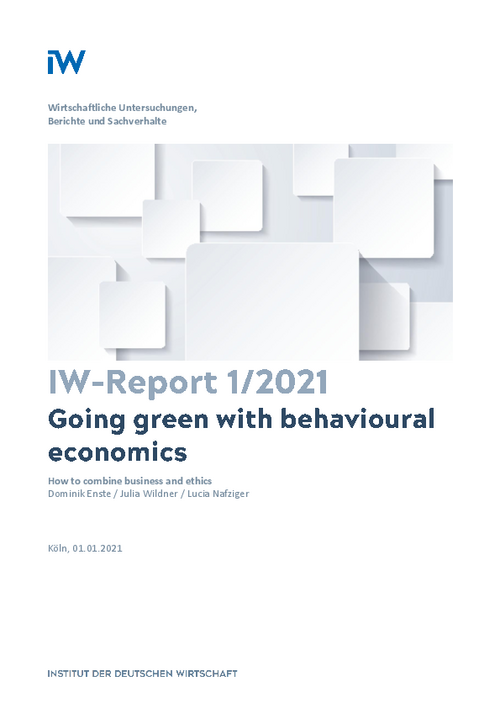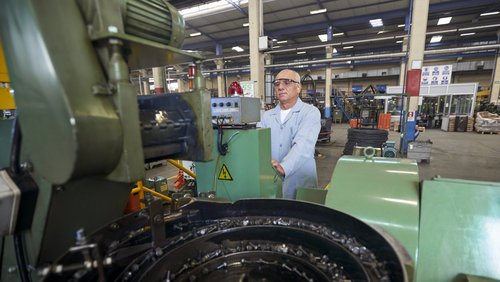This paper calls for an increased discourse between Fridays for Future and representatives of business. Fridays for Future play a key role in educating the public and raising awareness of scientific reports, such as the Intergovernmental Panel on Climate Change (IPCC) assessment, which demonstrate the urgency with which we must tackle climate change.

Going green with behavioural economics: How to combine business and ethics
IW-Report

This paper calls for an increased discourse between Fridays for Future and representatives of business. Fridays for Future play a key role in educating the public and raising awareness of scientific reports, such as the Intergovernmental Panel on Climate Change (IPCC) assessment, which demonstrate the urgency with which we must tackle climate change.
This is important to gain world attention on pressing questions of our time. At the same time, it is crucial to examine the main drivers in our socio-economic system to understand that the spread of information alone is insufficient to bring fundamental change. Human behaviour remains propelled by both the quest for prosperity and the call for a fair and sustainable economic system. We need to understand how to expand our economy in a sustainable way, how business can foster sustainable innovations and how to motivate consumers to support companies by buying green products. Companies are the necessary key for green innovations. These innovations are only as strong as their demand. Concern about the environment has widely spread in our society. At the same time this concern is not always translated into our actions. Behavioural Economics integrates psychological insights of human behaviour into economic theory and shows us solutions how to overcome the attitude-behavior-gap. Our aim is to work out how behavioural economics can be used to support environmentally friendly practices with incentives. All of our purchase decisions are influenced by cognitive biases. It is estimated that 40 percent of our day-to-day decisions are based on habits. The status quo bias or the discounting of future value often hinder pro-environmental behaviour. Therefore, purely apportioning blame will not result in changes. Instead, an adjustment of the framework through restructuring incentives to overcome biases can as a piece of the puzzle help to achieve the change required. Through the recognition of human “defaults” these can then be harnessed to nudge green actions. Similarly, the individual structural pursuit of profit can be channelled towards green growth. Through the spread of information and effective incentives, we can spark innovations which defuse tensions between economic growth and environmental protection, facilitating sustainable development.

Dominik Enste / Julia Wildner / Lucia Nafziger: Going green with behavioural economics – How to combine business and ethics
IW-Report


Wer im Alter arbeitet, ist zufriedener
Trotz Krisen ist die Lebenszufriedenheit der deutschen Wohnbevölkerung in den letzten Jahren gestiegen. Dabei äußern ältere Menschen, die einer Erwerbstätigkeit nachgehen, im Durchschnitt eine höhere Lebenszufriedenheit als ältere Menschen, die dies nicht tun. ...
IW
Führung in der Transformation: Megatrends und Management als Motor des Wandels
Die Führungsdynamik in Unternehmen ist einem steten Wandel unterworfen, um den Herausforderungen ihrer jeweiligen Zeit zu begegnen. Heute ergeben sich die größten Einflüsse aus Entwicklungen wie dem demografischen Wandel, der Globalisierung, der ...
IW